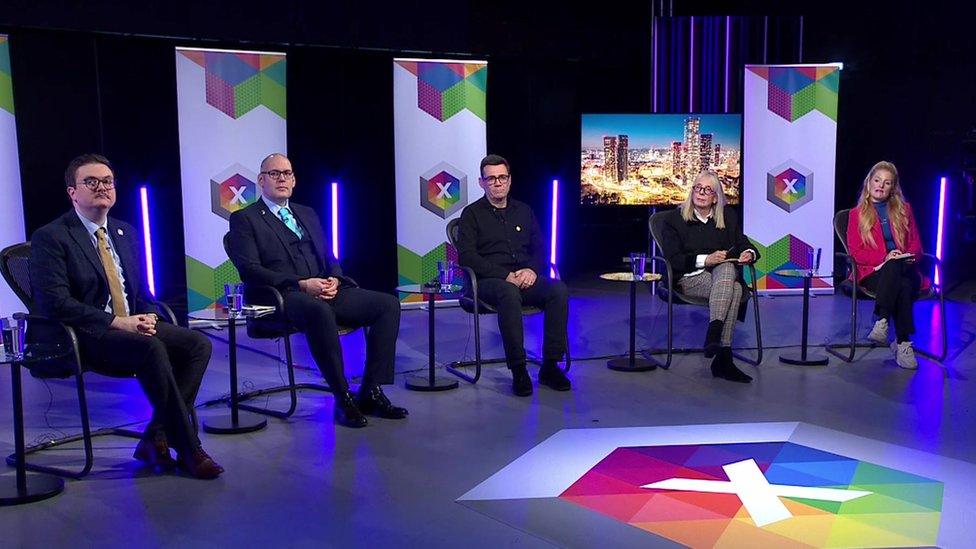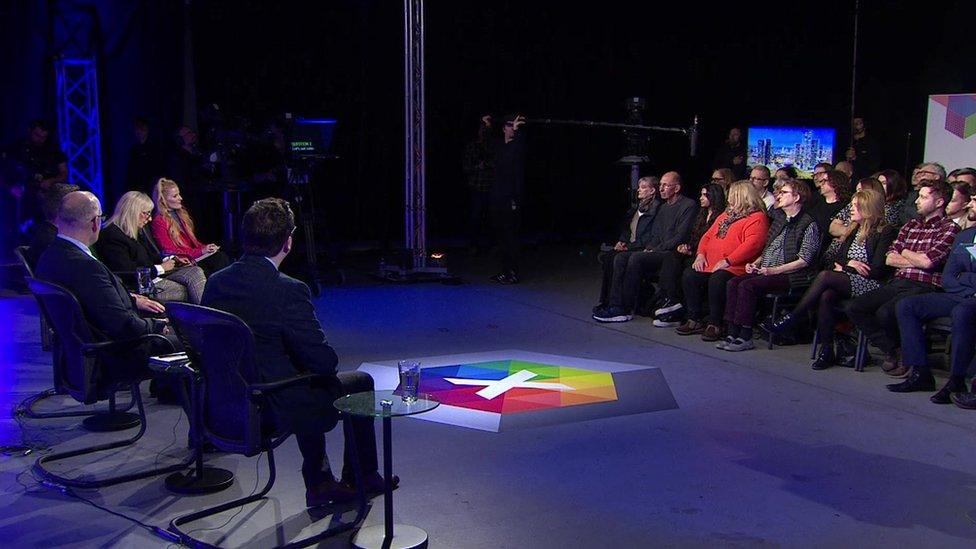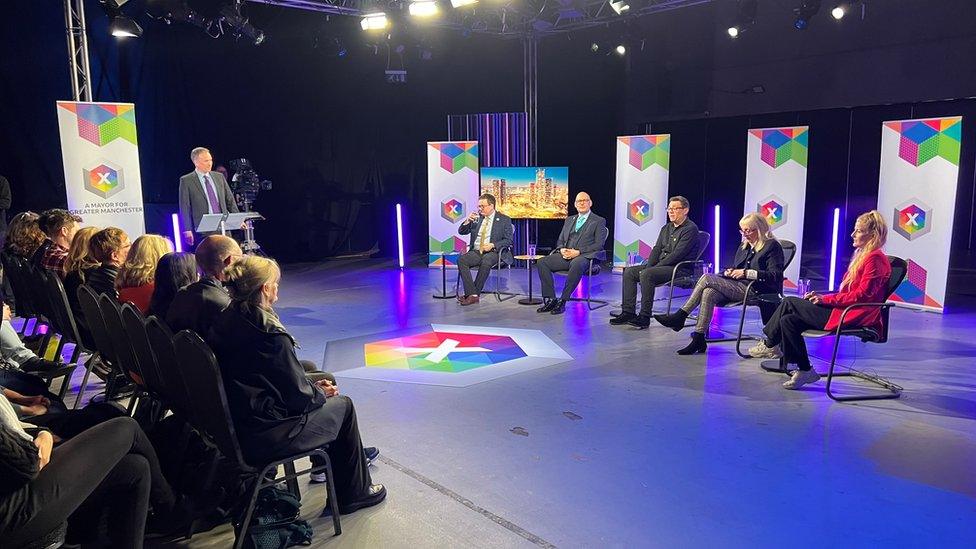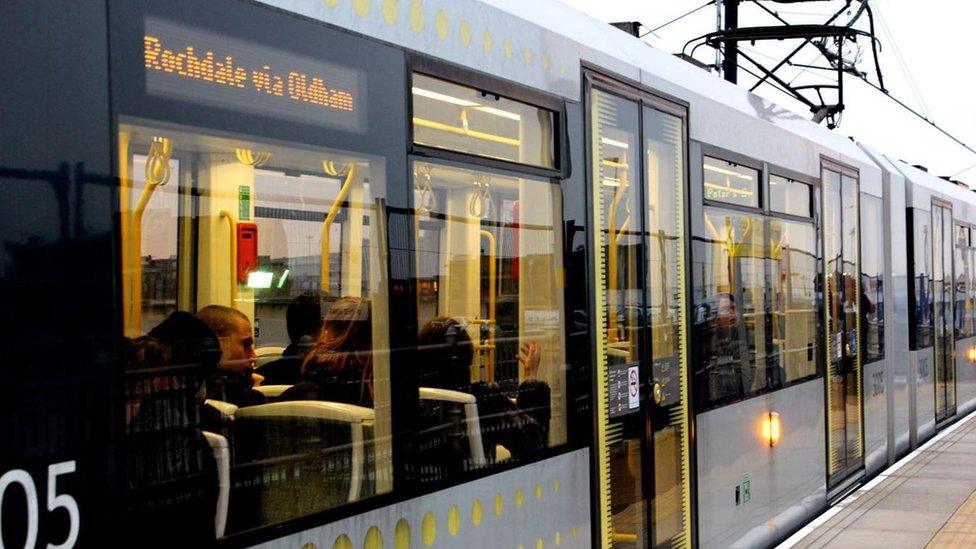Greater Manchester mayor hopefuls clash over key issues in BBC debate
- Published

The debate was filmed in Stretford on Monday
People across the 10 boroughs that make up Greater Manchester will head to the polls next week to choose a new mayor.
Six candidates are standing in the election to lead the city region's combined authority over the next four years. The role was created in 2017.
An hour-long BBC North West debate, filmed on Monday between five of the candidates, will be screened on BBC One and the BBC iPlayer from 20:00 BST.
The would-be mayors discussed their top priorities and most pressing issues.

The election hopefuls took questions from the audience
The mayoral role was only created seven years ago when additional powers and extra cash were handed to the Greater Manchester Combined Authority - the body that brings together its 10 local councils.
Among some of the powers the successful candidate will inherit are:
Control over some public transport
The ability to set region-wide planning policies
A £115m pot of cash to redevelop brownfield sites
The five hopefuls faced questions from members of the audience on subjects including public transport, technical skills education, and clean air zones.
When they were asked how they would help young people buy first-time homes, Conservative candidate Laura Evans said not enough affordable houses had been built, particularly in areas outside of Manchester city centre.
Labour's Andy Burnham, bidding for a third term as mayor, said he had brought through Places for Everyone, a 15-year development plan aiming to build 175,000 new homes. He also promised to crack down on bad landlords in the rental sector.
Jake Austin, from the Liberal Democrats, said it was a case of "build more homes" to lower the cost of mortgages and rents, while protecting areas of greenbelt with a "brownfield first approach".
Green Party candidate Hannah Spencer said she would consider rent controls to help people save towards a deposit, and improve the quality of homes being built.
Reform UK's Dan Barker said there was enough brownfield land available to boost the supply of housing, after criticising the previous mayor for what he saw as slow progress bringing a housing plan forward.

The debate will be broadcast on BBC One at 20:00 BST
The five candidates to feature in the debate represent parties which have a track record of support in previous elections for the Mayor of Greater Manchester.
Also standing this year is independent candidate Nick Buckley.
You can read more about how the BBC decides who takes part in the debates, and a full profile of each of the candidates.
About two million voters live across Greater Manchester, which includes the boroughs of Manchester, Salford, Wigan, Bolton, Bury, Rochdale, Oldham, Tameside, Stockport and Trafford.
Polling stations will open at 07:00 BST on 2 May and close at 22:00.
The result is expected to be declared at about 16:00 BST on 4 May.
For the first time, the winner will be decided using the same first-past-the-post system used in general elections.

Listen to the best of BBC Radio Manchester on Sounds and follow BBC Manchester on Facebook, external, X, external and Instagram, external? You can also send story ideas to northwest.newsonline@bbc.co.uk, external
- Published21 April 2024
